| All Artists: Gustav Mahler, Thomas Sanderling, St. Petersburg Philharmonic Orchestra Title: Mahler: Symphony No. 6 Members Wishing: 1 Total Copies: 0 Label: Real Sound Release Date: 8/15/2000 Genre: Classical Style: Symphonies Number of Discs: 2 SwapaCD Credits: 2 UPCs: 801859318625, 8018595301862 |
Search - Gustav Mahler, Thomas Sanderling, St. Petersburg Philharmonic Orchestra :: Mahler: Symphony No. 6
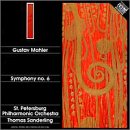 | Gustav Mahler, Thomas Sanderling, St. Petersburg Philharmonic Orchestra Mahler: Symphony No. 6 Genre: Classical
|
Larger Image |
CD DetailsSimilarly Requested CDs
|
CD ReviewsGreat performance; incredible bargain. Bob Zeidler | Charlton, MA United States | 08/11/2001 (5 out of 5 stars) "Thomas Sanderling, son of the great Kurt Sanderling, shows signs of being every bit the Mahlerian his father is. (The elder Sanderling earlier recorded a legendary performance of the Mahler 10th Symphony which now appears to be reissued imminently, an occasion of true note.) Despite the orchestral setting, Sanderling (and his father) are German, not Russian, having ended up on the eastern side of the Cold War Divide after WWII. The great Central European tradition so helpful for being a good Mahlerian is part of their shared musical heritage despite the fact that the son spent a far larger fraction of his life in the Soviet Union than did the father. There are a few tough benchmarks out there for any new performance of the Mahler 6th to meet or beat if it is to catch my attention. And, for each of these few exemplary recordings by my measurements, there are probably two to three times as many that I find myself not able to listen to at all. Somewhere between these two extremes is a large number of Mahler 6ths that may please others more than they please me, and so that is "what makes the world go round." The two Mahler 6th performances against which I inevitably compare others are the second Bernstein recording, with the Vienna Philharmonic Orchestra, on DG ("Bernstein II," to distinguish it from his earlier Columbia Masterworks [now Sony] recording with the New York Philharmonic Orchestra), and one by Benjamin Zander and the Boston Philharmonic, on Carlton Classics. (Both of these are available elsewhere at Amazon.com The Zander sometimes has "availability" problems, but it is well worth the wait.) What distinguishes the Bernstein II and Zander performances in my mind are several factors: The overall sense of the architecture of the piece as realized in the performance; the ability of each of these two conductors to treat his orchestra as one "of soloists," as Mahler intended; the virtuosic performances of these musicians (in Zander's case, a group of "semi-pro" musicians, remarkably); the correct sense of the beauty underlying the themes of the third-movement Andante moderato, with its constantly-shifting major-minor tonalities that suggest emotional ambiguity as little other music can; and, finally, the sense of absolute, crushing tragedy in the closing bars of the final movement. When performances are this fine, it matters little - if at all - whether the final movement has two or three hammer blows, or whether the Andante moderato movement is placed second or third in the order of movements. (Mahler had second and third thoughts on its placement, which is third in these two recordings and in the Sanderling recording under review. But, with easily-programmable CD players, the listener can readily have his choice in the matter.) With all of that as "groundwork," let me simply state that this Sanderling performance is fully the equal of the Bernstein II and the Zander on all levels. Sanderling has a sense of the work that is quite in line with those of the other two conductors, his St. Petersburg Philharmonic Orchestra provides wonderful playing of a warm resonance not often heard in Western orchestras, and the engineers provide a soundscape that is far better than those provided by Russian (and Soviet) engineering teams in the past. The high points - as in the Bernstein and Zander performances - are in the last two movements. The Finale in particular has that shattering intensity and sense of crushing finality in the closing measures that will leave you limp. (As a side note, the hammer blows - always a subject of controversy because there are either "one too many" or "one too few" and because they are either "inaudible" or "too instrusive" [a charge leveled against the Zander performance, but one with which I can easily live] are "just right" in this shattering performance.) As if all that weren't enough, this 2-CD recording, complete with a nicely-annotated booklet, is priced at a level that is simply irresistable. It should be in every Mahlerite's collection. Bob Zeidler" * * 1/2 -- After all the raves, a let-down John Grabowski | USA | 08/20/2004 (2 out of 5 stars) "With a work as recorded as this, you can do far better than this recording. There are no real insights here, the playing is curiously perfunctory and detached, and the orchestra is even sloppy in a few areas. For sheer knock-me-over impact, it's hard to beat Karajan, especially in the finale, where he steamrollers you. (That last forte chord always makes me jump, and I *know* it's coming.) Barbirolli is more interesting for his concept of grim-grim-grim unrelenting marching. Boulez abstracts the work more, making it sound not like Shostakovich, as Sanderling does, but *post* Shostakovich. And Lenny just gives you more sheer heart on the sleeve, especially with the "Alma" theme. Then there's the fiery Mitropoulos and the structural-minded Haitink (in a live performance) and the fleet, cool Szell. (Haven't heard MTT's performance in its entirety yet.) What they all have in common is the ability to whip the orchestra into a frenzy with their personal vision of the work. *That's* what I don't get here. I get 100 musicians playing the right notes (more or less--there are a few slips) but that's all. The first movement doesn't have that relentless drive, except in a sheer mechanical sense, though there are admittedly some sweet moments of repose near the end, some of the most successful moments on the disc. But the coda is slow and underpowered, with thin-sounding trumpets. (The close-miking doesn't help things.) The second movement is fine, and the Andante is probably the best movement overall, but I'm still not swept away by Mahler's bucolic remembrances, by that whistfulness that's in so much of Mahler's slow music, and there's some lackluster violin work at 5:38 (repeated at 5:43) into the movement, especially the first. More crucially, the shifting of moods as we alternate from major to minor just isn't there; I don't get a connection between the various musical episodes in this shifing movement. At 6:33 in the same movement, for example, there's a shining example of repose, for only one bar (but you have to be quick with Mahler); great interpretors make a moment of this, but here it's just played over on the way to the next phrase. And starting at 7:05, another tremendous moment in the descending violins is just neglected. The finale is loud, with lots of banging, but that's mostly it. There isn't the inevitable suction into the maelstrom. A lot of it, now that I think about it, has to do with phrasing and ***weight***, or lack of it. There's *clarity,* as a lot of people have pointed out, but sometimes that works to a disadvantage. Karajan, Barbirolli, Bernstein and Mitropoulos were masters of thickening and thinning the orchestral sound (as was Furtwangler, but he did not record the Mahler 6th--pity) that could sometimes give the illusion of speeding up or slowing down when in fact the tempo hadn't changed. Here the big climaxes, the intervening lulls, are let down, and the performance just moves from section to section. More than any other composer, Mahler demands you understand where you are in the piece at all times and where the piece is going. I don't get that as much here as I'd like. I am admittedly being harsh, but that's only because we live in a world filled with terrific Mahler 6ths, so the competition is hyper-intense. I'd opt for any of the performances I named above over this one, and most are in very good sound too. Recommended only if you must have every recording of the 6th out there." Mahler through the prism of Shostakovich Paul Bubny | Maplewood, NJ United States | 05/09/2002 (5 out of 5 stars) "In a couple of key aspects, this recording shouldn't be the stunning success that it turns out to be. The St. Petersburg Philharmonic shows off the sheer lung power that only the truly great ochestras command, but the body of tone they produce is more suited to a mid-to-late 20th Century composer such as Shostakovich, who of course counted Mahler among his chief influences. There's not that mixture of burnished and blunt that is a hallmark of the "Mahler sound," and which great Mahlerians such as Horenstein and Bernstein brought out regardless of the particular orchestra they were conducting. Here, everything is slightly harsh and astringent, even massed strings. And there's the CD layout: Aside from the fact that a two-CD set playing for only 81 minutes is stingy in these days of 81-minute single CDs, the option of programming the Andante to play before the Scherzo (which some Mahlerites prefer, and which may have been the order Mahler really intended--although we'll probably never know for certain) is not available here, since the Scherzo and Andante are on separate discs. (In all fairness, the same complaint may be raised about a few other sets of this symphony.)Despite these criticisms, I'd choose this recording of the Mahler Sixth over any other that I know of. Why? Because although he's clearly looking at Mahler as a precursor to Shostakovich, Thomas Sanderling gives us the clearest rendering on record of this complex and lacerating score. In doing so, he nimbly avoids the traps which snare other conductors to a greater or lesser extent. Unlike Bernstein or Tennstedt, he avoids exaggerating a symphony that is already composed in italics with underlines and exclamation points (although it must be said that in context, the exaggerations can make quite an impact). Unlike Boulez, Karajan or Dohnanyi, he avoids refining something essential out of the music. Unlike Horenstein or Zander (in his Boston Philharmonic recording now superceded by a remake on Telarc), he is not stymied by a lack of virtuosity on the orchestra's part. The outcome is that the "hero's" final defeat is all the more moving and sobering for being arrived at with a lack of sentimentality and horror-movie melodrama."
|

 Track Listings (2) - Disc #1
Track Listings (2) - Disc #1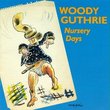
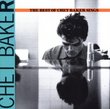
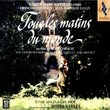
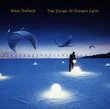

![Seussical [2000 Original Broadway Cast]](https://nationalbookswap.com/cd//m/02/4802/514802.jpg)



